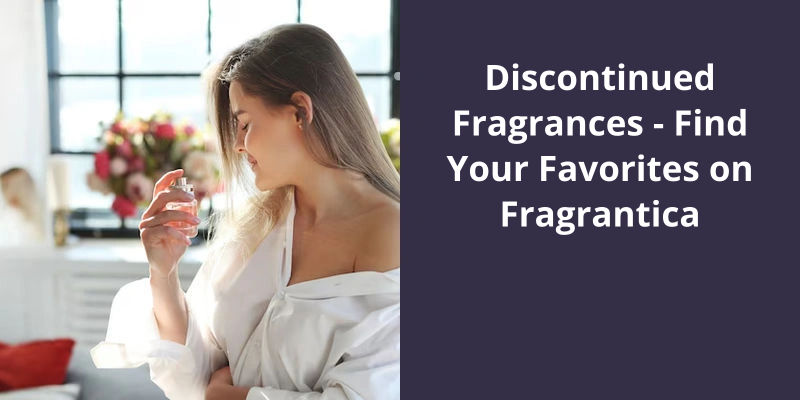Yes, Lavender and Jasmine do go together. They are both popular scents in aromatherapy, known for their calming and relaxing effects. When combined, they create a complex fragrance that’s both floral and slightly herbaceous. Lavender’s subtle, soothing scent enhances jasmine’s exotic aroma, creating a harmonious blend that can be used for a variety of purposes like in perfumes, soaps, and candles, as well as in essential oil mixes for relaxation and stress relief. Mixing these scents not only provides an appealing smell but can also benefit mental and emotional well-being.

Do Jasmine and Lavender Flavors Go Together?
Jasmine oil, on the other hand, is known for it’s uplifting and antidepressant effects. Combining these two oils can create a powerful and harmonious scent that’s both soothing and invigorating.
When it comes to flavors, lavender and jasmine can also complement each other beautifully. Both have a delicate floral aroma that adds a unique and luxurious touch to dishes and beverages. Lavender is often used in culinary applications, such as lavender-infused desserts, teas, and even cocktails.
The combination of these two flavors can create a delightful and sophisticated treat that’s perfect for special occasions or afternoon tea.
Whether used in essential oil blends for aromatherapy or in culinary creations, the combination of these two floral notes can create a harmonious and delightful experience that promotes relaxation and indulgence.
Benefits of Jasmine Oil in Aromatherapy
Jasmine oil is widely used in aromatherapy due to it’s many benefits. It’s known for it’s calming and soothing properties, making it an excellent choice for reducing stress and anxiety. Jasmine oil is also believed to have antidepressant effects, helping to uplift and improve mood.
In addition to it’s emotional benefits, jasmine oil is often used to promote better sleep quality. It’s relaxing properties can help induce a sense of tranquility, making it ideal for those struggling with insomnia or sleep disorders.
Furthermore, jasmine oil is often used as a natural aphrodisiac due to it’s sensual and exotic scent. It can help enhance intimacy and create a romantic atmosphere.
It’s worth noting that lavender oil and jasmine oil complement each other well in aromatherapy. The soothing and balancing properties of lavender oil can enhance the relaxation and calming effects of jasmine oil, creating a harmonious blend that can promote overall well-being.
Overall, jasmine oil is a popular choice in aromatherapy due to it’s wide range of benefits, and when combined with other essential oils like lavender, it can create a delightful fragrance with enhanced therapeutic effects.
Additionally, when combined with lavender, jasmine adds a floral and sweet fragrance to create a harmonious blend of scents. The aromatic qualities of these two botanicals intertwine, resulting in a soothing and captivating aroma that delights the senses.
Does Jasmine Smell Good With Lavender?
When it comes to pairing fragrances, one delightful combination to consider is lavender and jasmine. These two scents intertwine to create a harmonious and captivating aroma. Lavender, known for it’s calming and soothing qualities, complements jasmine, a scent often associated with romance and sensuality.
In terms of fragrance composition, lavender combines beautifully with a variety of base notes. Cedarwood, with it’s woody and comforting aroma, enhances the earthy qualities of lavender. Frankincense, known for it’s spicy and resinous scent, adds depth and luxury. Jasmine, when paired with lavender, creates a lovely balance between floral and herbal notes.
Myrrh, with it’s warm and rich aroma, brings a touch of mystery to the blend. Patchouli, known for it’s earthy, musky scent, adds an element of depth and sensuality. Rose Absolute, with it’s romantic and feminine aroma, complements both lavender and jasmine beautifully. Sandalwood, with it’s creamy and luxurious scent, adds a subtle sweetness to the blend. Lastly, Vetiver, with it’s smoky and earthy aroma, creates a grounding effect and enhances the overall composition.
With the addition of base notes such as Cedarwood, Frankincense, Jasmine, Myrrh, Patchouli, Rose Absolute, Sandalwood, and Vetiver, the blend becomes even more captivating.
How Lavender and Jasmine Scents Can Vary Depending on Geographic Region or Growing Conditions.
- Factors influencing the scent of lavender and jasmine
- Geographic variations in lavender and jasmine scents
- Growing conditions and their effects on lavender and jasmine odors
- Differences in fragrance due to climate and soil characteristics
- Regional variations in lavender and jasmine aromas
- The impact of altitude and temperature on scent profiles
- How cultivation methods can alter the fragrance of lavender and jasmine
- Organic vs. conventional farming: implications for scent variations
- The role of essential oils in capturing distinct lavender and jasmine aromas
- Traditional extraction techniques and their effects on scent quality
- Consumer preferences for specific lavender and jasmine scent profiles
Source: Which is the best bedroom fragrance, lavender or Jasmine?..
Furthermore, lavender has long been hailed for it’s soothing effects and ability to promote relaxation and better sleep. However, recent research suggests that jasmine may provide an even more superior sleep experience. In a study conducted at the University of West Virginia, scientists discovered that participants who slept in a room infused with jasmine scent experienced significantly more restful sleep compared to those in lavender-scented rooms or scent-free control rooms. This intriguing finding raises the question: Is jasmine the ultimate sleep-inducing fragrance?
Is Lavender or Jasmine Better for Sleep?
When it comes to choosing scents for better sleep, many people wonder if lavender or jasmine is more effective. In a study conducted at the University of West Virginia in the United States, scientists explored this very question. The participants were divided into three groups: one slept in a room scented with lavender, another in a room scented with jasmine, and the third in a control room with no scent at all.
Surprisingly, the results showed that those who slept in the jasmine-scented room appeared to sleep more peacefully than the other two groups. It was observed that the calming aroma of jasmine had a positive effect on sleep quality. The participants in this group reported feeling more relaxed and experiencing less restlessness during their sleep.
On the other hand, lavender is widely known for it’s relaxing properties and is often recommended for promoting better sleep. It’s important to note that individual preferences and responses to scents can vary, so what works for one person may not work for another.
Creating a calming environment with pleasant scents can contribute to a restful nights sleep, so don’t be afraid to explore different aromas to find what suits you best.
The Use of Scents in Sleep-Related Products, Such as Candles or Essential Oils
The use of scents in sleep-related products, such as candles or essential oils, can have a significant impact on the quality of sleep. Lavender and jasmine, in particular, are two popular scents known for their calming and soothing properties.
Lavender has been used for centuries as a natural remedy for insomnia and anxiety. It’s a gentle and pleasant aroma that can help relax the mind and body, promoting a more restful sleep. Jasmine, on the other hand, is known for it’s ability to reduce stress and promote a sense of tranquility.
When combined, lavender and jasmine create a delicate and harmonious scent that can enhance the sleep environment. The calming properties of lavender work in synergy with the stress-reducing qualities of jasmine, creating a soothing atmosphere conducive to a good night’s sleep.
Whether used in the form of scented candles, essential oils, or pillow sprays, the combination of lavender and jasmine can create a serene ambiance in the bedroom, helping to promote relaxation and prepare the mind and body for sleep.
When it comes to finding the perfect fragrance to complement jasmine, there are several options that exude sensuality and capture attention. Elements such as sandalwood, amber, musk, and vanilla work harmoniously with jasmine to create an irresistible scent that leaves a lasting impression. With notes of bitter orange, jasmine sambac, neroli, orange blossom, sandalwood, amber, musk, and vanilla, this captivating combination will have everyone inquiring about the alluring perfume you’re wearing.
What Fragrance Goes With Jasmine?
Jasmine, renowned for it’s captivating floral fragrance, seamlessly pairs with various notes to create a well-balanced and alluring scent. One popular combination includes sandalwood, amber, musk, and vanilla, resulting in a sensual fragrance that leaves a lasting impression. Incorporating bitter orange, jasmine sambac, neroli, orange blossom, sandalwood, amber, musk, and vanilla, this blend creates a harmonious symphony of aromas that oscillate between sweet, earthy, and warm tones.
Musk, known for it’s animalistic undertones, further enhances the allure of jasmine. It’s musky scent acts as a bridge, connecting the floral sweetness of jasmine with the deeper and more mysterious notes of sandalwood and amber. The addition of vanilla brings a touch of indulgence and richness to the blend, adding a creamy and comforting element that complements the overall composition.
These notes work harmoniously together, creating a well-balanced scent that’s both irresistible and memorable. Whether it’s a luxurious perfume or a scented candle, this blend proves to be a crowd-pleaser, with everyone curious about the mesmerizing fragrance that surrounds you.
Companion herbs play a significant role in enhancing the beauty and effectiveness of lavender gardens. Among these, rosemary is the ultimate partner, bringing a touch of Mediterranean allure. Oregano, on the other hand, proves to be an unexpectedly delightful pairing, while thyme confidently claims it’s spot alongside lavender. And let’s not forget sage, another seamless match that adds depth and richness to your aromatic oasis. These herbs, when combined with lavender, create a harmonious symphony of scents and flavors, elevating the overall experience of your garden.
What Does Lavender Best Pair With?
When it comes to pairing lavender with other herbs, there are a few tried and true companions that bring out the best in this fragrant plant. One of lavenders best friends in the herb garden is rosemary. Both hailing from the Mediterranean, these two herbs have a natural affinity for each other. Their flavors and aromas complement each other beautifully, making them a popular combination in cooking and herbal remedies.
Another herb that pairs well with lavender is oregano. The slightly spicy and pungent flavor of oregano adds depth and complexity to the floral notes of lavender. Whether used in culinary dishes, teas, or fragrant sachets, the combination of lavender and oregano is a winning one.
Thyme is another herb that complements lavender perfectly. Both herbs belong to the mint family and share similar characteristics. Whether used fresh or dried, this combination is sure to please the senses.
Sage is another herb that makes an excellent companion for lavender. Sages savory and slightly bitter taste provides a nice balance to the sweet and floral notes of lavender.
Mint adds a refreshing and cooling element to lavender, making it a popular choice for summer drinks and desserts. Lemon balms citrusy and herbal flavor complements the floral notes of lavender, creating a bright and uplifting combination. Chamomiles gentle and soothing qualities blend well with the calming and relaxing properties of lavender, making them a great pair for herbal infusions and bath products.
So, go ahead and experiment with different combinations to find your perfect blend of lavender and herbs.
Lavender and Ginger: The Spicy and Warm Flavor of Ginger Adds a Bold and Exotic Twist to the Floral and Herbal Qualities of Lavender. This Combination Can Be Used in Culinary Dishes, Herbal Remedies, and Aromatic Candles.
- The spicy and warm flavor of ginger adds a bold and exotic twist to the floral and herbal qualities of lavender.
- This combination can be used in culinary dishes, herbal remedies, and aromatic candles.
Lavender essential oil is a versatile fragrance that harmonizes beautifully with various other scents. It blends flawlessly with citrusy notes such as bergamot, sweet orange, and lemon, offering a refreshing and uplifting aroma. For a more floral and soothing blend, rose and jasmine create a delightful combination with lavender. Additionally, herbal scents like peppermint, eucalyptus, and rosemary add a cooling and invigorating touch, while woody aromas such as cedarwood and pine bring a sense of grounding and warmth to the mix. Experimenting with different essential oils opens up a world of possibilities to enhance the therapeutic benefits and aromatic experience of lavender.
What Is the Best Scent to Mix With Lavender?
When it comes to finding the perfect scent to mix with lavender, the options are truly endless. Lavender essential oil blends beautifully with a wide range of other essential oils, each offering it’s unique aromatic profile and wellness benefits. One popular choice is bergamot, a citrusy oil known for it’s calming and uplifting properties. It’s bright, refreshing scent pairs perfectly with the soothing floral notes of lavender, creating a harmonious balance that can promote relaxation and ease tension.
Another lovely pairing for lavender is sweet orange essential oil. The sweet and fruity aroma of orange complements the soft, floral scent of lavender, resulting in a delightful and invigorating blend. This combination is known for it’s mood-boosting qualities and is often used to promote a positive and uplifting atmosphere.
The zesty and vibrant scent of lemon also pairs wonderfully with lavender. Lemon essential oil adds a touch of freshness and zest to the calming qualities of lavender, making it an excellent choice for creating a revitalizing and rejuvenating atmosphere. This blend is particularly popular for it’s ability to promote focus and mental clarity.
For those looking for a more romantic scent combination, rose essential oil is an excellent choice to mix with lavender. The delicate and intoxicating aroma of rose blends seamlessly with the floral notes in lavender, creating a luxurious and sensual fragrance. This blend is often used to create a romantic and relaxing ambiance or to enhance self-care practices.
Peppermint, with it’s invigorating and cooling properties, can also be an interesting choice to mix with lavender. The fresh and minty scent of peppermint provides a delightful contrast to the soothing and calming qualities of lavender. This combination can offer a refreshing and uplifting experience, perfect for creating a revitalizing and energizing atmosphere.
Lastly, eucalyptus essential oil can be a great companion to lavender. The cooling and invigorating scent of eucalyptus is known for it’s respiratory benefits and can provide a refreshing aroma when combined with the floral and herbaceous notes of lavender. This blend is often used to create a spa-like experience or to promote a sense of clarity and focus.
Conclusion
These two aromatic plants not only complement each other, but they also have a harmonious synergy that can be truly enchanting.





